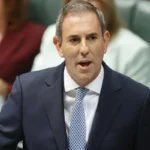The recent accusations by the World Anti-Doping Agency (WADA) against the U.S. are nothing short of shocking and could potentially mark one of the largest doping scandals in history.
According to reports, the U.S. Anti-Doping Agency (USADA) allegedly devised a scheme that allowed athletes who had used performance-enhancing drugs to continue competing for years. In at least one instance, USADA reportedly failed to publish or sanction these athletes for their anti-doping violations, directly violating both the World Anti-Doping Code and its own regulations.
This situation has escalated into what appears to be a full-blown conflict between WADA and USADA. WADA’s searing statement underscores the gravity of the situation: “How must other athletes feel knowing they were competing in good faith against those who were known by USADA to have cheated? It is ironic and hypocritical that USADA cries foul when it suspects other Anti-Doping Organizations are not following the rules to the letter, while it did not announce doping cases for years and allowed cheats to carry on competing, on the off chance they might help them catch other possible violators. WADA wonders if the USADA Board of Directors, which governs USADA, or the U.S. Congress, which funds it, knew about this non-compliant practice that not only undermined the integrity of sporting competition but also put the cooperating athletes’ security at risk.”
This controversy has raised serious questions about the integrity of USADA and the broader implications for global sports governance.
WADA emphasized that this scheme by USADA undermined the integrity of sporting competition, which the Code is designed to protect. By engaging in this practice, USADA breached the established rules. Despite USADA’s claims, WADA never approved this practice of allowing drug cheats to compete under the pretext that they might gather incriminating evidence against others.
The Code does include a provision for reducing an athlete’s period of ineligibility if they provide substantial assistance. However, this process does not involve permitting athletes who have cheated to continue competing while they may or may not gather evidence against others, especially when the performance-enhancing effects of the substances they used could persist. When WADA eventually discovered this non-compliant practice in 2021, long after it had begun, it immediately instructed USADA to cease the activity.
As athletes from around the world compete in the 2024 Paris Olympics, a heated dispute over anti-doping issues is escalating within global anti-doping communities. Ta Nea will follow up on a series of reports highlighting the U.S.’s role in the controversy and how its influence in international sports is undermining global anti-doping regulations.
Cover-ups, double standards, and abuse of power—the doping scandal involving American sprinter Erriyon Knighton is quickly turning into a major credibility crisis for the United States Anti-Doping Agency (USADA).
In March, World Anti-Doping Agency (WADA) tests detected a banned substance in Knighton’s system. However, USADA avoided suspending him, attributing the positive result to meat contamination. Remarkably, the U.S. agency declared that “justice was served” even before WADA had reviewed the case and before the appeal deadline had passed.
A Reuters report published Wednesday revealed that USADA has been operating a scheme allowing U.S. athletes who committed doping violations to compete without sanctions for years.
In stark contrast, USADA adopted a much harsher stance toward Chinese swimmers in similar contamination cases, accusing the China Anti-Doping Agency (CHINADA) and WADA of “covering up the truth” and pushing for sanctions against the athletes, despite repeated clarifications from WADA and an independent investigation.
In April, a New York Times article claimed that 23 Chinese swimmers had tested positive for the same banned substance before the delayed Tokyo Olympics in 2021 yet were allowed to compete. This sparked frustration and speculation, leading WADA and the International Olympic Committee (IOC) to defend their decision to clear the swimmers.
In July, WADA released an official report from Eric Cottier, the Swiss prosecutor assigned to investigate the case. Cottier found no evidence of favoritism towards China in WADA’s handling of the situation and concluded that WADA made a “reasonable” decision in trusting the Chinese authorities’ explanation that the swimmers had unknowingly ingested a banned heart medication, traces of which were found in the hotel kitchen where the athletes were staying.
Meanwhile, in the U.S., a House Committee on China requested on May 21 that the Justice Department and FBI investigate the case under a federal law allowing probes into suspected doping cases, even if they occurred outside the U.S., according to the Associated Press (AP).
World Aquatics, the global governing body for water sports, confirmed to the AP that its executive director, Brent Nowicki, had been subpoenaed to testify in the U.S. criminal investigation into the Chinese case under the Rodchenkov Anti-Doping Act, a law that grants U.S. officials what some analysts have described as “near-Orwellian powers of prosecution.”
WADA President Witold Banka addressed the issue during a session of the IOC in Paris on July 24, just days before the start of the 2024 Olympic Games. He criticized the law as “a tool for USADA to put itself above the rest of the world, perhaps even to replace WADA as the global regulator for anti-doping.” Banka warned that if U.S. authorities assert jurisdiction over cases unrelated to them, it risks placing the U.S. outside the global anti-doping system. “This cannot be allowed to stand,” he stated.












